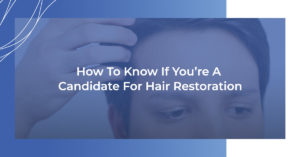
Back in 1896, for instance, Scientific American published a study stating that playing brass instruments (like the tuba or trombone) caused baldness in the musicians playing them. In more modern times, Moby blames his time as a rave DJ in the 90s for his own hair loss.
But how likely are those assertions?

 The holidays are famous for bringing stress along with joy. So, it’s hardly a shock that to some, they are also associated with hair loss. But it doesn’t have to be that way.
The holidays are famous for bringing stress along with joy. So, it’s hardly a shock that to some, they are also associated with hair loss. But it doesn’t have to be that way. The impact of a toxic relationship on a
The impact of a toxic relationship on a  The choice to have a hair transplant is often rooted in
The choice to have a hair transplant is often rooted in  For many of us, our careers are one of the single
For many of us, our careers are one of the single  People who are under
People who are under  May marks the 73rd annual
May marks the 73rd annual  If you watched this year’s Academy Award ceremony, you saw
If you watched this year’s Academy Award ceremony, you saw  Your doctor said that your hair loss is not genetic, male-pattern baldness, or related to a hormone imbalance… but stress is usually a factor in your thinning hair. It’s not like your
Your doctor said that your hair loss is not genetic, male-pattern baldness, or related to a hormone imbalance… but stress is usually a factor in your thinning hair. It’s not like your  The term
The term